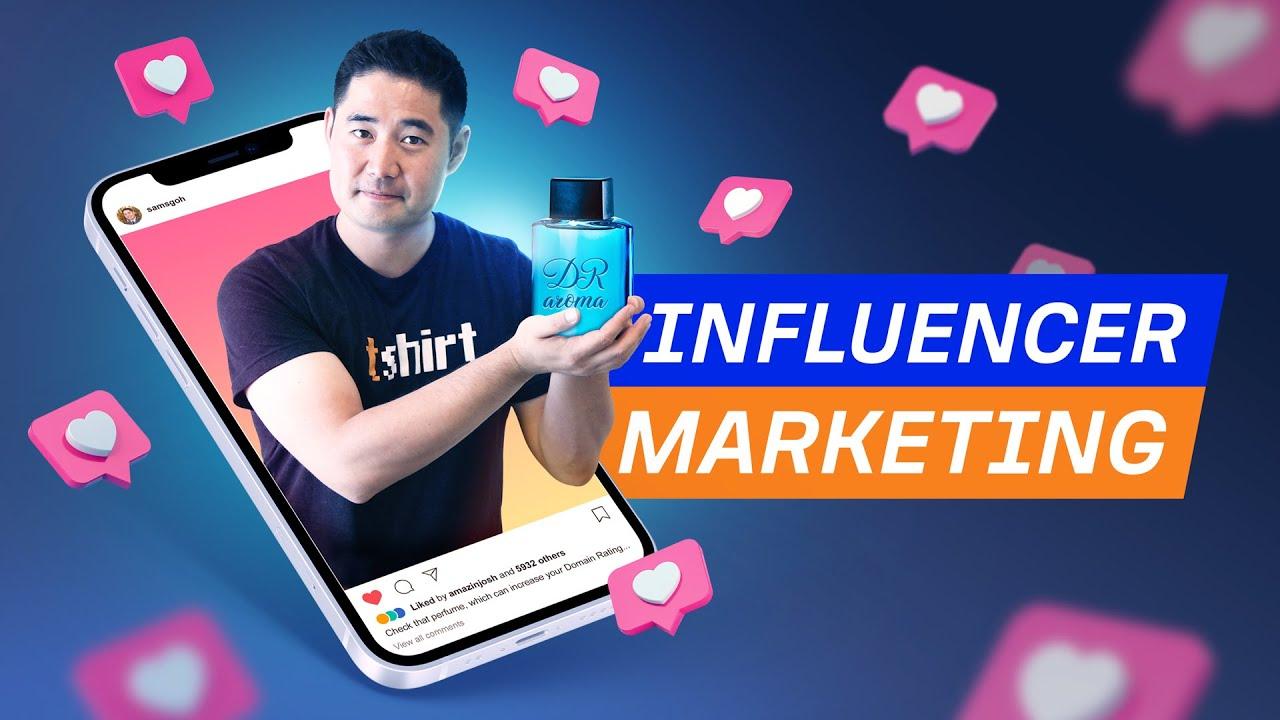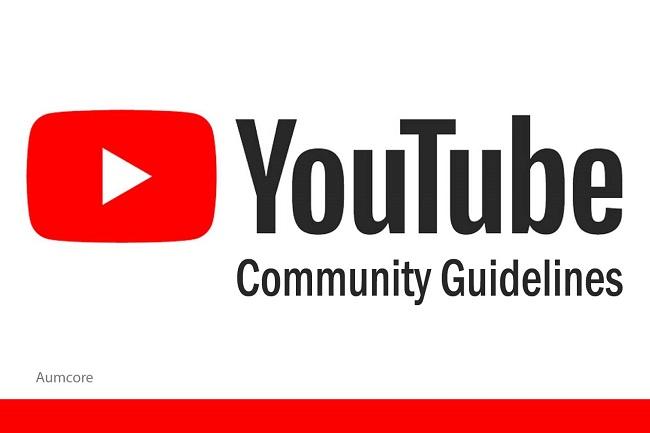
In an era where digital platforms shape public opinion and consumer behavior, influencer marketing stands at the forefront of brand engagement. Among these platforms, YouTube has emerged as a powerful realm where creativity meets commerce, and influencers wield meaningful sway over their audiences. Yet, behind the vibrant thumbnails and energetic vlogs lies a complex web of legal considerations that often elude both creators and brands alike. “Decoding the Law: YouTube Influencer Marketing Uncovered” aims to demystify the legal landscape surrounding this burgeoning industry. From disclosure obligations to copyright issues, we explore the regulations that govern influencer partnerships and the implications they hold for content creators, brands, and consumers. Join us on this insightful journey as we unveil the rules of engagement in the world of YouTube influencer marketing, ensuring that both influencers and brands can navigate this dynamic landscape with clarity and confidence.
understanding the Legal Landscape of Influencer Marketing on YouTube
In the dynamic realm of YouTube influencer marketing, both brands and creators must navigate a complex array of legal considerations to ensure compliance and protect their interests. One of the primary legal requirements is disclosure. Influencers are mandated to clearly inform their audience when their content is sponsored or when they have received incentives for promoting a product. This ensures openness and fosters trust,which can substantially impact audience engagement. The federal Trade Commission (FTC) oversees these guidelines, providing a framework that includes ample details on how disclosures should be made.
Additionally,copyright law plays a crucial role in this landscape. Influencers often utilize music, imagery, and other content created by third parties, which necessitates a solid understanding of fair use and permissions to avoid legal pitfalls. Engaging in unauthorized use can lead to significant ramifications,including takedown notices or even legal actions. Brands and influencers should consider the following key points to stay on the right side of the law:
- Understand the FTC guidelines for endorsements and testimonials.
- Ensure proper licensing of third-party content used in videos.
- Keep abreast of changes in applicable marketing laws and practices.
Implementing an effective strategy for legal compliance also involves understanding the nuances of contract law. Agreements between brands and influencers should be meticulously crafted to address aspects such as payment terms, creative control, content ownership, and performance expectations. A well-structured contract not only helps mitigate disputes but also establishes clear guidelines for both parties,paving the way for successful partnerships. The following brief table outlines pivotal elements that should be included in influencer marketing agreements:
| Contract Element | Description |
|---|---|
| Payment Structure | Clear terms on compensation, bonuses, or performance incentives. |
| Content Ownership | Specification of rights over created content and usage terms. |
| Disclosure Requirements | Guidelines for how disclosures should be made in videos. |
| Termination Clauses | Conditions under which either party can terminate the agreement. |

Key Regulations Every youtuber Should Know for Compliance
In the dynamic world of YouTube, understanding the legal landscape is paramount for creators aiming to maintain compliance and uphold their credibility. YouTubers should be notably mindful of the following regulations that govern influencer marketing and content creation:
- FTC guidelines: The Federal Trade Commission mandates clear disclosure of paid promotions. Use of hashtags like
#ador#sponsoredis essential. - Copyright Laws: Respecting copyright is crucial; always ensure that music, images, and clips used in your videos are either originally created, licensed, or fall under fair use.
- Children’s Online Privacy Protection Act (COPPA): If your content targets children, comply with COPPA regarding data collection and privacy practices.
Additionally, it’s wise to pay attention to platform-specific rules, as YouTube’s Community Guidelines outline content restrictions including hate speech, harassment, and misleading information. non-compliance can lead to demonetization or channel termination. Familiarizing yourself with the following key elements can safeguard your channel:
| Regulation | Description |
|---|---|
| Content Ownership | Ensure you have rights to all content used and appropriately credit creators. |
| Advertising Standards | Ads must not mislead or create undue pressure on viewers. |
| Health Claims | Be wary of making unverified health claims to avoid legal repercussions. |

Best Practices for Transparent Sponsorships in Content Creation
In the evolving landscape of influencer marketing,clarity is paramount for maintaining trust with audiences. Content creators must disclose sponsorships clearly and effectively to uphold transparency. This includes using clear language and placing the disclosures prominently within the content. Whether it’s a YouTube video, Instagram post, or blog, creators should integrate the following practices:
- Utilize clear language: Phrases like “paid partnership” or “sponsored by” should be visible at the beginning of the content.
- Employ visual cues: Enhancing disclosures with noticeable graphics or tags can further inform viewers.
- Maintain consistency: adopting a standard method for disclosures helps regular viewers recognize sponsorships easily.
Moreover, understanding the legal implications of undisclosed sponsorship is crucial for both content creators and brands. Familiarity with regulations, such as the Federal trade Commission (FTC) guidelines, not only protects the influencer but also builds credibility with the audience. Here’s a simplified comparison of appropriate vs. inappropriate disclosures:
| Appropriate Disclosures | Inappropriate Disclosures |
|---|---|
| “This video is sponsored by [Brand Name].” | “Thanks to [Brand Name] for the support!” |
| “Paid promotion.” | No mention of sponsorship. |
| “Collaborating with [Brand Name].” | Ambiguous phrasing like “Working with…” without clarity. |

Navigating Intellectual Property Rights in Influencer Collaborations
In the rapidly evolving arena of influencer marketing, understanding the intricacies of intellectual property rights is paramount. When collaborating with brands, influencers must be vigilant about protecting their creative works. Key considerations include ensuring proper rights to use existing content, negotiating licensing agreements, and recognizing the implications of fair use.It is indeed essential for influencers to carefully read contracts and advocate for clauses that safeguard their personal brand and original content, as these elements can have lasting impacts on their career and reputation.
Furthermore, brands should also be cognizant of the potential pitfalls when engaging with influencers.Both parties need to establish clear expectations regarding content ownership and attribution rights.To facilitate smoother collaboration, here are some essential points to include in contracts:
| Aspect | Considerations |
|---|---|
| Content Ownership | Who retains rights after the campaign? |
| Usage Terms | How long can content be used by the brand? |
| Attribution | How should the influencer be credited? |
| Compensation | is there a fee for the use of original works? |
These critical considerations will help both influencers and brands navigate the murky waters of intellectual property rights, ensuring that collaborations flourish within a framework of mutual respect and understanding.
Closing Remarks
As we conclude our exploration of the intricate world of YouTube influencer marketing, it becomes evident that the intersection of creativity and legality is a complex landscape that both influencers and brands must navigate with care. Decoding the law surrounding this dynamic field not only empowers creators and marketers to engage authentically with their audiences but also fosters a more transparent environment for consumers. As regulations continue to evolve, staying informed is imperative for all stakeholders involved. Whether you’re an aspiring influencer, a seasoned marketer, or simply a curious viewer, understanding these legal nuances can enhance your experience and participation in this vibrant digital ecosystem. In the ever-changing narrative of influencer marketing, knowledge is not just a tool; it’s the key to unlocking opportunities while maintaining trust and integrity in an age of connectivity.